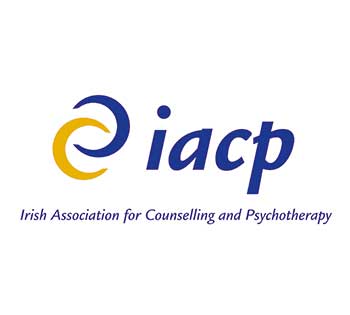CBT for the Pluralistic/Integrative therapist – IACP approved for 30 CPD hours
Dates: 2025
Fri 19 Sep 2025 9.30am – 4.30pm
Fri 26 Sep 2025 9.30am – 4.30pm
Fri 03 Oct 2025 9.30am – 4.30pm
Fri 10 Oct 2025 9.30am – 4.30pm
Fri 24 Oct 2025 9.30am – 4.30pm
Cost: € 680
Live online interactive workshop
€680.00
Historical & Philosophical Underpinnings of CBT: Learn about the history of CBT & discover the philosophical underpinnings of CBT, examining the influence of stoicism, rational emotive behaviour, and other philosophical schools of thought that emphasise rational thinking and the role of cognitive processes in emotional regulation.
Core Principles of CBT: foundational principles of CBT, including the cognitive model, the role of behavioural techniques, and the emphasis on collaborative empiricism and skill development in therapy.
Understanding and Developing a CBT Model: Learn how to conceptualise cases through the CBT lens, developing clear models for understanding clients’ problems, and designing targeted therapeutic interventions and share conceptualisations with your clients.
Introducing the Treatment Model to Clients: Master the skills needed to effectively communicate the CBT model to clients, ensuring they understand the rationale behind the techniques and the expectations of their active participation.
Assessment and CBT: Cover the strategies and tools for assessing clients’ difficulties, including the use of structured interviews, questionnaires, and the importance of ongoing assessment throughout the therapy process.
Case Formulation in CBT: Learn the art of case formulation, a crucial skill in CBT that involves integrating assessment information to create a coherent framework for understanding a client’s issues and guiding treatment.
Session Structure in CBT: Review the typical structure of a CBT session, including agenda setting, reviewing homework, addressing current problems, and setting new homework, to create a focused and effective therapeutic encounter.
The Therapeutic Process & Alliance in CBT: Examine the key elements of the therapeutic process in CBT, including building a strong alliance, working with resistance, and repairing ruptures to facilitate client progress.
Understanding and Working with Core CBT Skills: Gain proficiency in core CBT skills such as collaborative practice, guided discovery, Socratic questioning, cognitive restructuring, behavioural activation, behavioural experiments and relapse prevention, and understand how to apply them in therapy.
The Importance of Homework in CBT: Discuss the critical role of homework in CBT, how to effectively set and review it, and strategies for increasing adherence to ensure that learning and progress extend beyond the therapy sessions.
Introduction to CBT for Depression: Investigate CBT’s approach to treating depression, focusing on identifying and modifying maladaptive thought patterns and behaviours.
Introduction to CBT for Anxiety Disorders: Explore CBT interventions for a range of anxiety disorders, emphasising exposure-based techniques and cognitive restructuring.
Behavioural Techniques: Learn about behavioural strategies in CBT, including the use of behavioural activation to combat inertia and behavioural experiments to test and modify beliefs.
Cognitive Techniques: Examine techniques to identify and challenge negative automatic thoughts, underlying assumptions, and core beliefs, and learn how these cognitive processes contribute to clients’ difficulties.
Evaluating Outcomes in CBT: Understand the methods for measuring therapy outcomes, the importance of empirical evaluation, and the use of these evaluations to inform practice and ensure the efficacy of interventions.
Integrating Mindfulness: Learn to blend mindfulness techniques with cognitive-behavioural strategies, enhancing clients’ ability to observe their thoughts and feelings without judgement and improve their emotional well-being.
How to Integrate CBT into Your Current Theoretical Framework: This topic addresses the strategies for seamlessly incorporating CBT methods into your existing practice, whether it’s psychodynamic, humanistic, existential, or another orientation. It focuses on identifying synergies between CBT and other therapeutic approaches, respecting the unique aspects of each client’s needs and your own style as a therapist, while ensuring that the integration enriches the therapeutic process rather than diluting it. This involves understanding the points of convergence and divergence, and developing a cohesive approach that allows for the flexibility and adaptability necessary in a pluralistic therapeutic environment.
Susi holds a Master of Science in Cognitive Behaviour Therapy (CBT) and Motivational Interviewing, a Higher Diploma in Psychology (level 8) and a BA (Hons) in Linguistics, from UCD, a BA (First Class Honours) in Integrative Counselling & Psychotherapy from IICP College (Dublin), a Professional Certificate in Cognitive Behaviour Therapy, Professional Certificate in Child and Adolescent Counselling and a Diploma in Clinical Supervision.
To deepen her knowledge on how CBT can be applied to help with weight management, Susi attended a specialised workshop at the Beck Institute in Philadelphia. The Beck institute is at the forefront of international research and training in CBT, and Dr Judith Beck is the author and founder of the Beck Diet Solution.
Beside her own private practice as a Psychotherapists and Supervisor, Susi also lectures at IICP College, Dublin.


© Copyright 2022 | Susi Lodola. All Rights Reserved | Powered by Digital Media Center